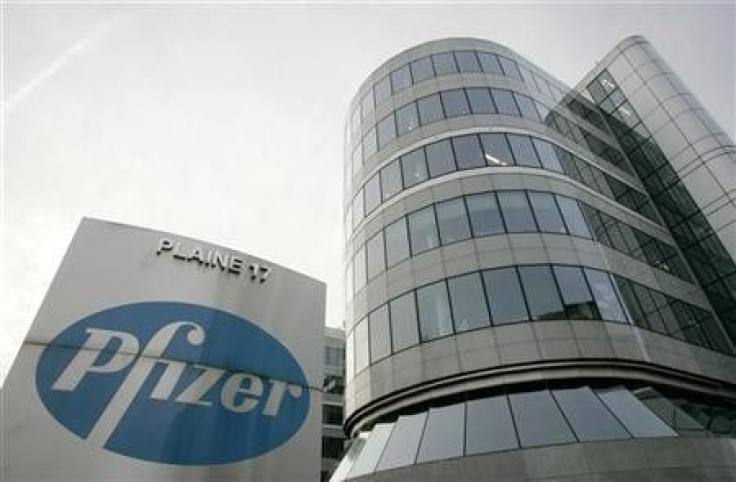Lipitor Generic Sales Could Be Unfairly Limited by Pfizer Agreements, Say 3 U.S. Senators

Three prominent United States senators wrote a letter to numerous drug makers Thursday to inquire into Pfizer Inc.'s deals with insurers and pharmacy benefit managers that might limit the market for the selling of generic versions of the company's Lipitor cholesterol drug.
Lipitor, one of the most popular drugs in U.S. history, lost its patent protection Wednesday. In an effort to combat lost revenue that would be seen almost immediately, Pfizer has arranged agreements with insurers and pharmacy benefit managers to offer Lipitor at identical or lower prices than generic versions.
In essence, those pharmacies would fill prescriptions for cholesterol patients with Lipitor instead of generic drugs. Pfizer said in a statement Thursday that the arrangements were an effort to offer patients their popular drug at a lower price.
Our intent is to offer Lipitor to payors and patients at or below the cost of a generic, Pfizer's statement read. As a result, patients receive Lipitor at co-pays comparable to generics. Participation in Pfizer's programs by a health plan is entirely voluntary.
But the three leading senators -- Senate Finance Committee Chairman and Democrat Max Baucus, Senate Aging Committee Chairman and Democrat Herb Kohl, and Senate Judiciary ranking Republican Charles Grassley -- said in the letter that Pfizer's deals limit competition and could spike healthcare costs for U.S. patients in Medicare and Medicaid programs.
By working with manufacturers to push brand-name drugs, drug benefit companies may be abusing Medicare to boost their profits and denying generic alternatives to patients - a practice that needs to end immediately, said Senator Baucus in an accompanying statement.
We need to take a close look to ensure we're protecting both taxpayer dollars and access to the medicine patients need.
The senators wrote the letter to Pfizer, Medco Health Solutions, Express Scripts, Catalyst Health Solutions, Coventry Health Care and UnitedHealth Group.
Consumers and taxpayers foot the bill when drug benefit companies and insurers manipulate the marketplace to prevent access to generic drugs for millions of Americans, Kohl said in a release accompanying the letter.
We hope that scrutiny into these business practices will restore fairness and open the gates to affordable prescription drug choices and tremendous cost savings.
The New York Times reported on Nov. 11 that Pfizer had entered into agreements with pharmaceutical benefit management companies, including Medco Health Solutions and Catalyst RX. The deals prevented customers from receiving generics for six months in certain prescription drug plans. Under the plan, the co-pay for a 30-day supply of Lipitor would be just $10, equivalent to a generic brand.
In the letter, the senators ask for a list of all agreements between Pfizer and pharmacy benefit managers, as well as copies of these agreements and all documents, communications and presentations pertaining to the agreements. It asks the companies to respond until Dec. 21.
Two companies, Medco and Express Scripts, told Reuters they would comply with the inquiry.
We look forward to sharing our approach on how Medco's Lipitor strategy will save our clients and members upwards of $1 billion over the next year alone, Medco spokeswoman Ann Smith told Reuters.
Earlier Thursday, Ranbaxy Laboratories was granted approval by the U.S. Food and Drug Administration to enter the market to sell a generic version of Lipitor. Ranbaxy is the first generic version of Lipitor. It has exclusive rights to compete with Lipitor for 180 days.
© Copyright IBTimes 2024. All rights reserved.











